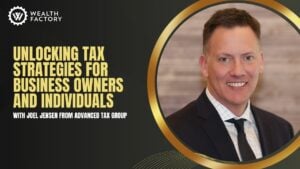If you have retirement money squirreled away in a 401(k) or any other personal retirement account, you better grab your pitchfork to defend it.
At least that’s the conclusion a seasoned financial journalist at the Wall Street Journal came to after his investigation.
You see, as the government looks for ways to pay down the $20 trillion national debt, personal retirement accounts are seen as easy targets for Congress to raid.
One insider put it this way: “It’s not really a question of whether retirement plans will get a haircut, but of how much.”
The Story
For the last 30+ years, Americans have piled up trillions of dollars in personal retirement accounts like 401(k)s.
In fact, personal retirement plans in the U.S. alone now have more than $25 trillion invested in them.
The vast majority of that money has yet to be taxed. That money — and it’s future earnings – won’t be taxed until it is taken out of the account and used by the retiree.
But recent government studies suggest that taxing these accounts before the money is withdrawn could raise up to $1.5 trillion in tax revenue over the next decade.
That may be too easy of a target for Congress not to raid. After all, the money is locked away and off most people’s radars — but the IRS has account numbers and balances for every penny of it (due to mandatory reporting by the fund managers).
Bradford Campbell, former U.S. Secretary of Labor says it this way:
“We definitely need comprehensive tax reform. Unfortunately, when lost revenue has to be replaced, it’s a game of winners and losers, and the retirement system is poised to be one of the losers.”
Our Take
We agree with the dangers cited in the Wall Street Journal article noted above.
However, the author (and the experts he quotes) come to some faulty conclusions based on their belief in the outdated accumulation theory of retirement.
For example, the article suggests mandatory 401(k) deposits as a solution — which would force people to take more money out of their lives and put it into investments they don’t understand or control.
At Wealth Factory, we recommend avoiding the “accumulation game” altogether when it comes to securing your retirement.
In fact, Garrett Gunderson, Chief Wealth Architect here at Wealth Factory has warned against putting your future into the hands of personal retirement accounts for over 17 years.
And his New York Times best-selling book, Killing Sacred Cows outlines at least half a dozen additional problems that come with 401(k) plans.
So the new warnings cited by the Wall Street Journal simply confirm what we’ve known for a long time:
You are much better building up cash flow investments for retirement than trying to play the accumulation game.
All our educational courses and our hands-on financial services (like the Wealth Architecture Premium program and FastTrack) guide you through the steps you need so you can create Economic Independence in your life.
It all starts by focusing on cash flow instead of accumulation.
What To Do Next
If you don’t have a personal retirement account established, you probably will be better off never starting one (see below for what to do instead).
But what if you already have one of these types of deferred retirement accounts set up?
If you currently have a 401(k) or any other personal retirement account, you may want to consider stopping all payments into it immediately.
This is a big decision and should only be made with agreement from your entire wealth team. Also – you want to make sure any payments are re-deployed to support an overall cash-flow wealth strategy instead of just consuming them.
For example, you could use that money to first build up liquidity. If you don’t have at least 6 months of living expenses in liquid, easily-accessible cash, that should be your first priority.
After that, you want to start building up your personal Wealth Account and ideally convert it into a Cash Flow Bank if you are able.
Then you can start funding a Living Wealthy account so you can enjoy life along the way as you build up your wealth.
These are foundational pieces to building a solid, cash-flow oriented Wealth Architecture.
You may even be able to convert some of your current funds locked up in personal retirement accounts to accelerate the building of this financial foundation.
Once you have that solid base, then you can focus on building up your cash flow engine so you can fully power and enjoy your life now, while fully securing your retirement in the future.
And if you do it the way we show, you can actually increase your monthly cash flow the older you get.
Plus you never have to worry about the government raiding your retirement account.
Your Action Plan
Here are a few ways you can start preparing yourself right now:
- If you are financially inclined and a self-starter, you can do a lot of this yourself by following the step-by-step program outlined in the Curriculum for Wealth program.
- If you want more hands-on guidance and lifetime access to all of our programs, you may even be interested in our premier Wealth Builders Club membership (only available for a few days, at the time of this article’s publishing).
- And if you prefer a more done-for-you service and want to work with our team of financial experts 1-on-1 to build a comprehensive wealth strategy, see if we’re the best fit for your personal financial situation right now.
- Join us for our first-ever Wealth Summit this November in Park City, Utah. Garrett just announced all the details about it here.
Until next time…
Build the life you love,
The Builders at Wealth Factory
What is Living Wealthy Weekly?
Each week we share timely trends, news stories, and current events that affect your life. We help you see the impact, personally and socially, and give you possible solutions to avoid any negative effects. We also give you additional links and resources if you want to investigate further. The purpose is not to be the last word on any topic. Rather it’s to help us all stay informed of what’s going on in the world without letting those events negatively impact your lifestyle. Our goal is to help us all live richer, fuller lives from a position of financial strength. This allows you to weather economic hard times, and seize whatever new opportunities arise in our changing world.


